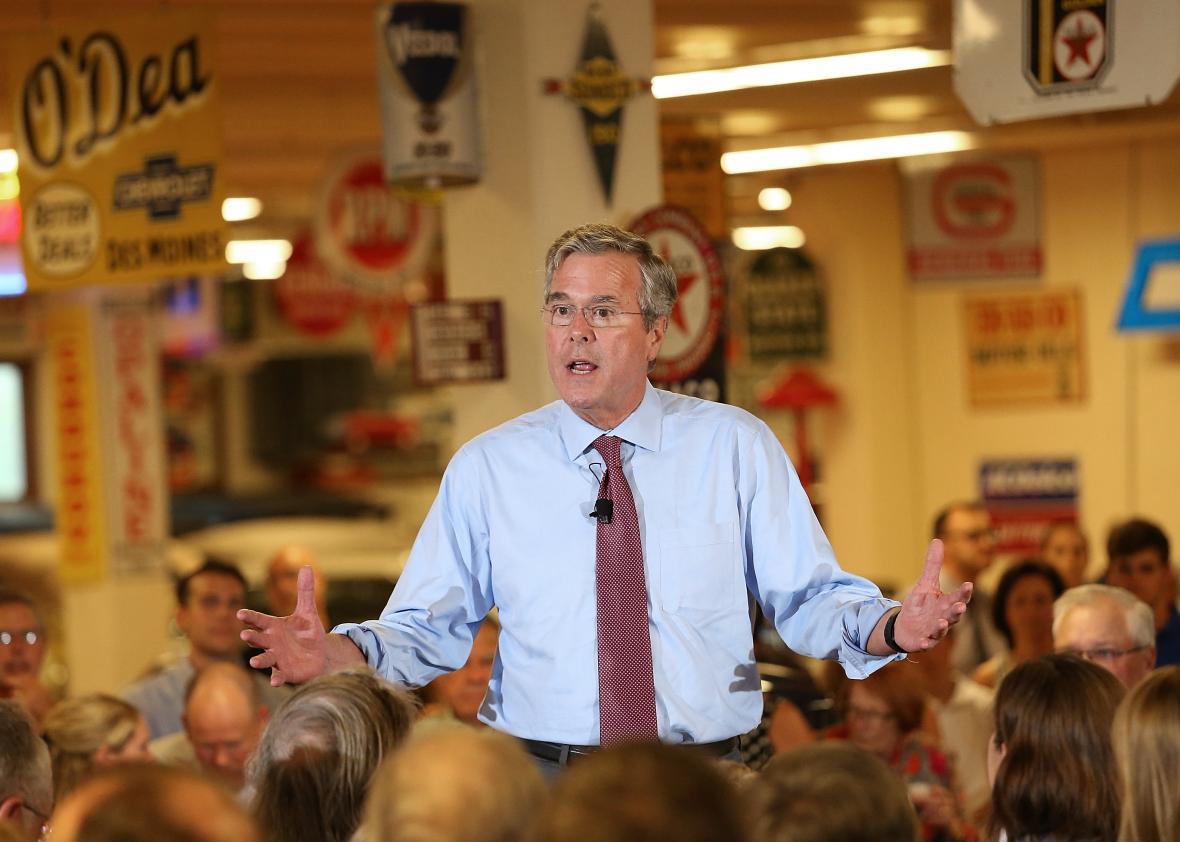OSKALOOSA, Iowa—Tired of fighting against the anti-establishment headwinds that have battered his campaign, Jeb Bush this week began to see if he could sail with them at his back.
“What we need to do is disrupt Washington, to challenge every aspect of what it does, to take it on,” the son and brother of two of the past four U.S. presidents said here on Wednesday. “I believe I can disrupt the old order in Washington, D.C.,” the man with the most GOP endorsements in the field added later, “because I did it when I was governor of the state of Florida.”
Disruption, it seems, is the unofficial theme of Jeb’s current three-day swing through the Hawkeye State. He tested out a similar pitch the previous night during a fundraising stop at a county GOP event in eastern Iowa, and did the same in an op-ed he published in the Des Moines Register that evening. “While others in this race pay lip service to reforming Washington,” he wrote in the state’s largest newspaper, “I am the one candidate for president with the strongest record of bringing disruptive change to government.”
This, to put it mildly, will be a difficult needle for Bush to thread. Even if voters are willing to suspend their disbelief that a modern-day political scion can be an outsider who will strike fear into the political establishment, Wednesday’s performance made it clear that they’ll also have to ignore a whole host of contradictions inherent in Jeb’s rebranding effort.
The one-time GOP front-runner opened by telling the crowd that when he was governor, he was above party politics: “It didn’t matter if you had an R by your name or a D by your name,” he said. Before he was done, though, he was decrying the “progressive liberal agenda” that he said was being pushed by Democrats in Washington. His attacks on the status quo, meanwhile, came with the necessary digs at lobbyists and special interest groups, but later while trying to prove his gun-rights bona fides to a questioner, Bush was quick to tout an award he won from the National Rifle Association—which, by almost any definition, is a lobby that holds outsize sway in Washington.
Similarly, Bush continued to try to have it both ways when it came to the intra-party attacks that have come to define a GOP race that has been shaped by the blustery belligerence of Donald Trump. He lamented the sniping that was going on on the trail, but later took his turn subtweeting his rivals. “I don’t believe the people who talk about it, who sit on the back bench and talk about things all the time and go on the talk shows, are necessarily the ones who can do it,” he said in a not-so-veiled shot at less politically experienced candidates like Trump, Marco Rubio, and Ted Cruz.
It’s hard not to see panic in Bush’s attempts to have it both ways. His donors have made it clear that they are losing patience with his middling performance on the campaign trail, and he knows he must do something to right the ship, and soon. His problem, though, is that by trying to be two very different things—establishment favorite and anti-Washington crusader—to two very different groups of people, he risks becoming a candidate who is nothing to either.
